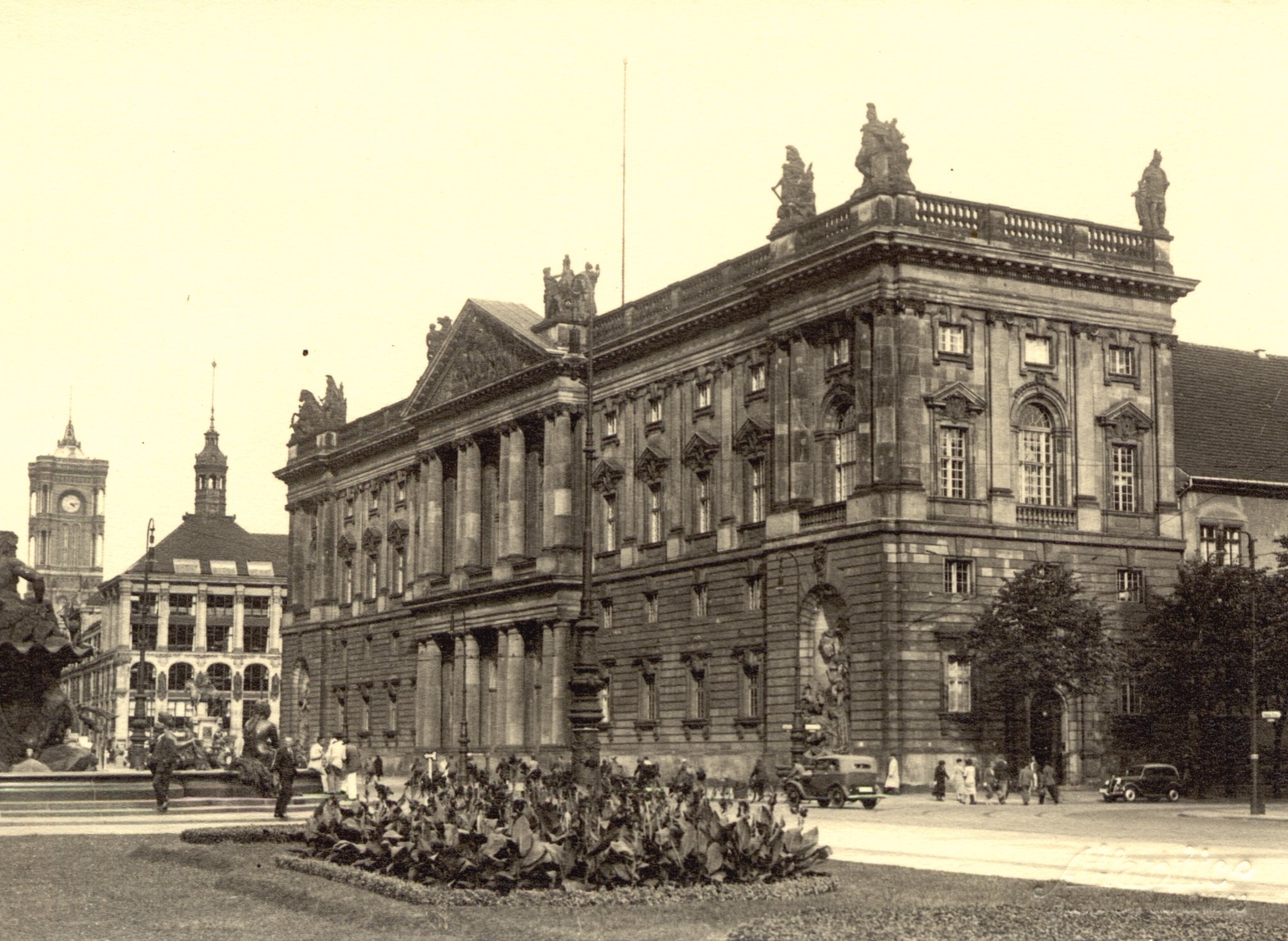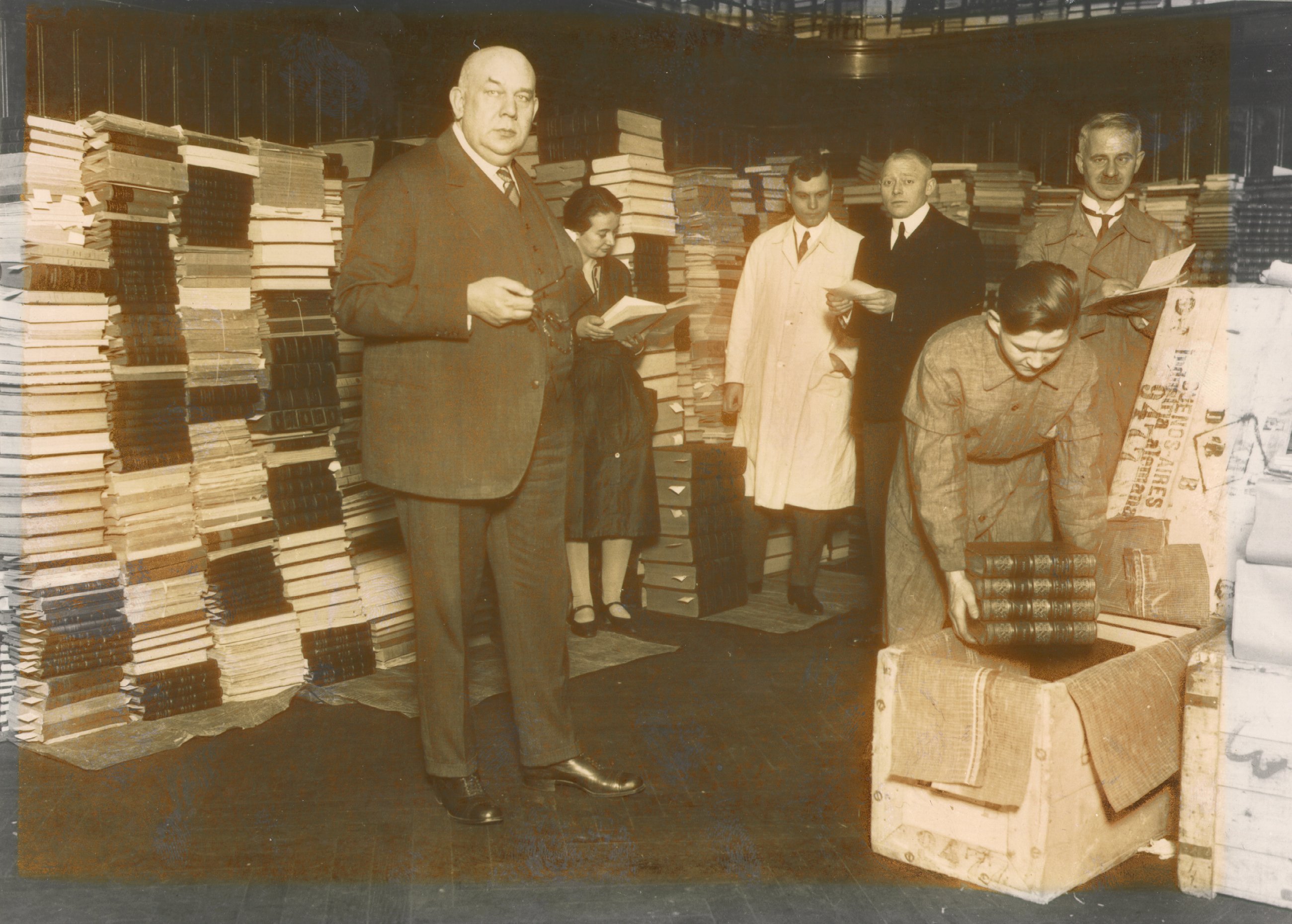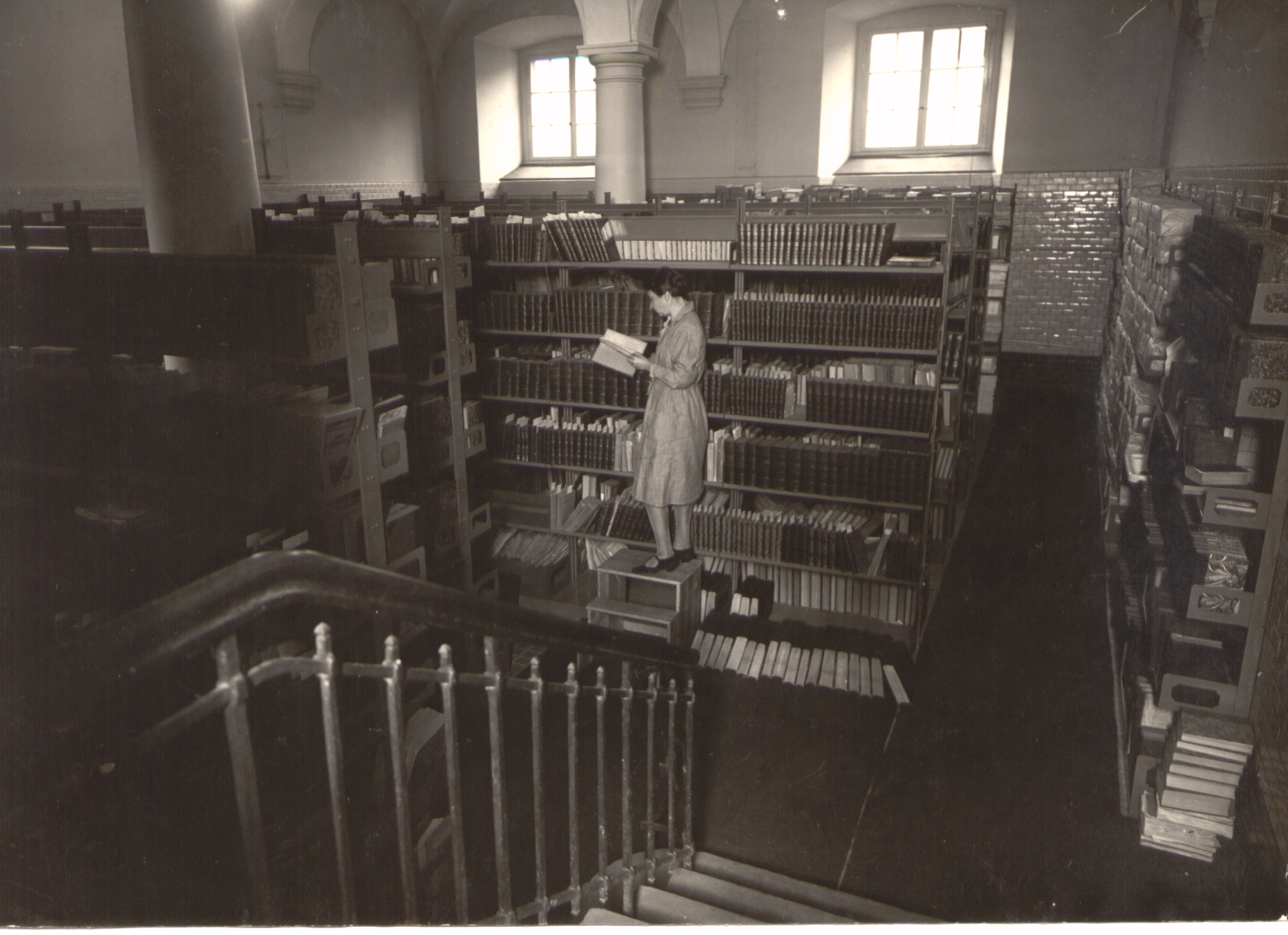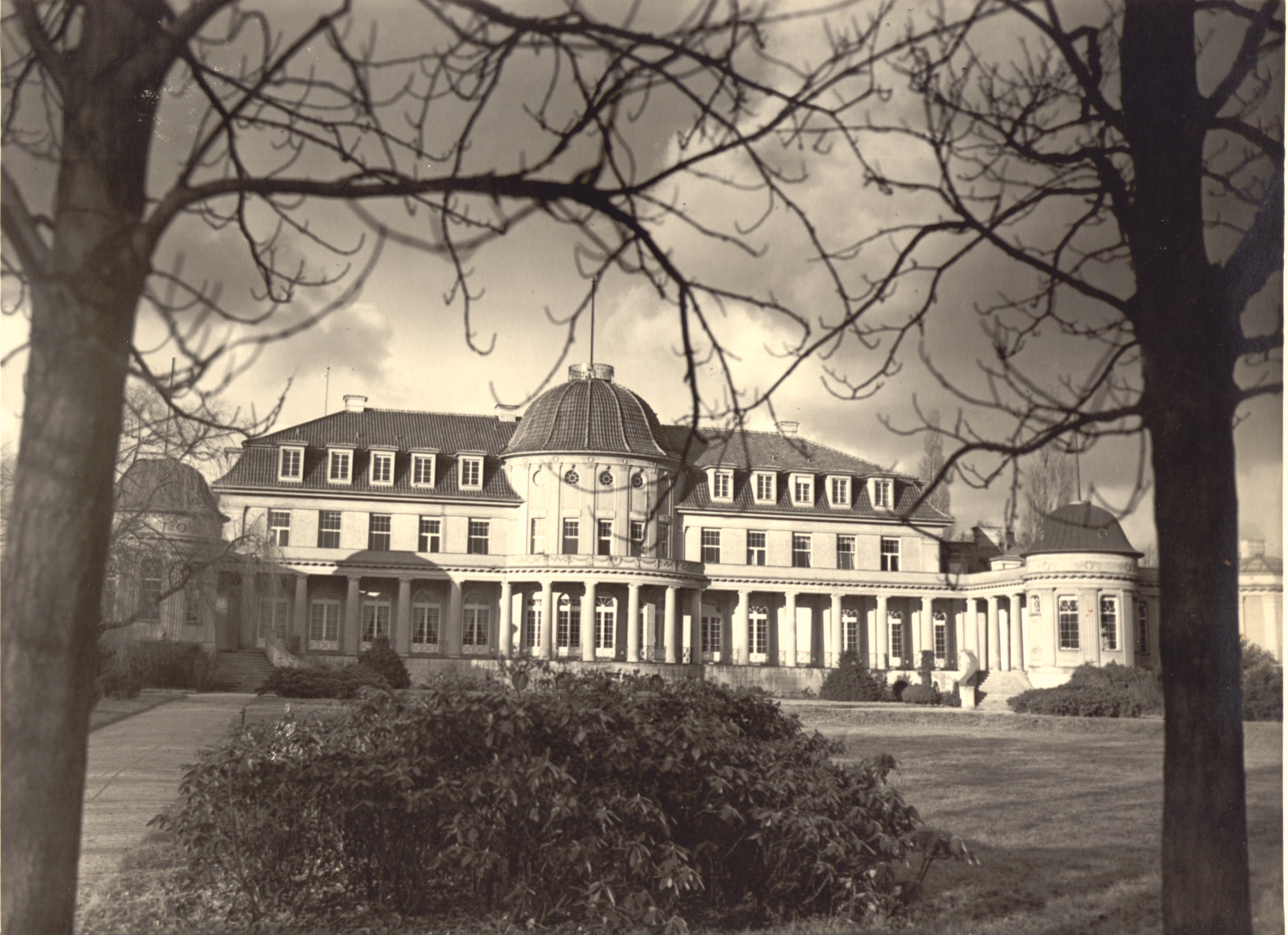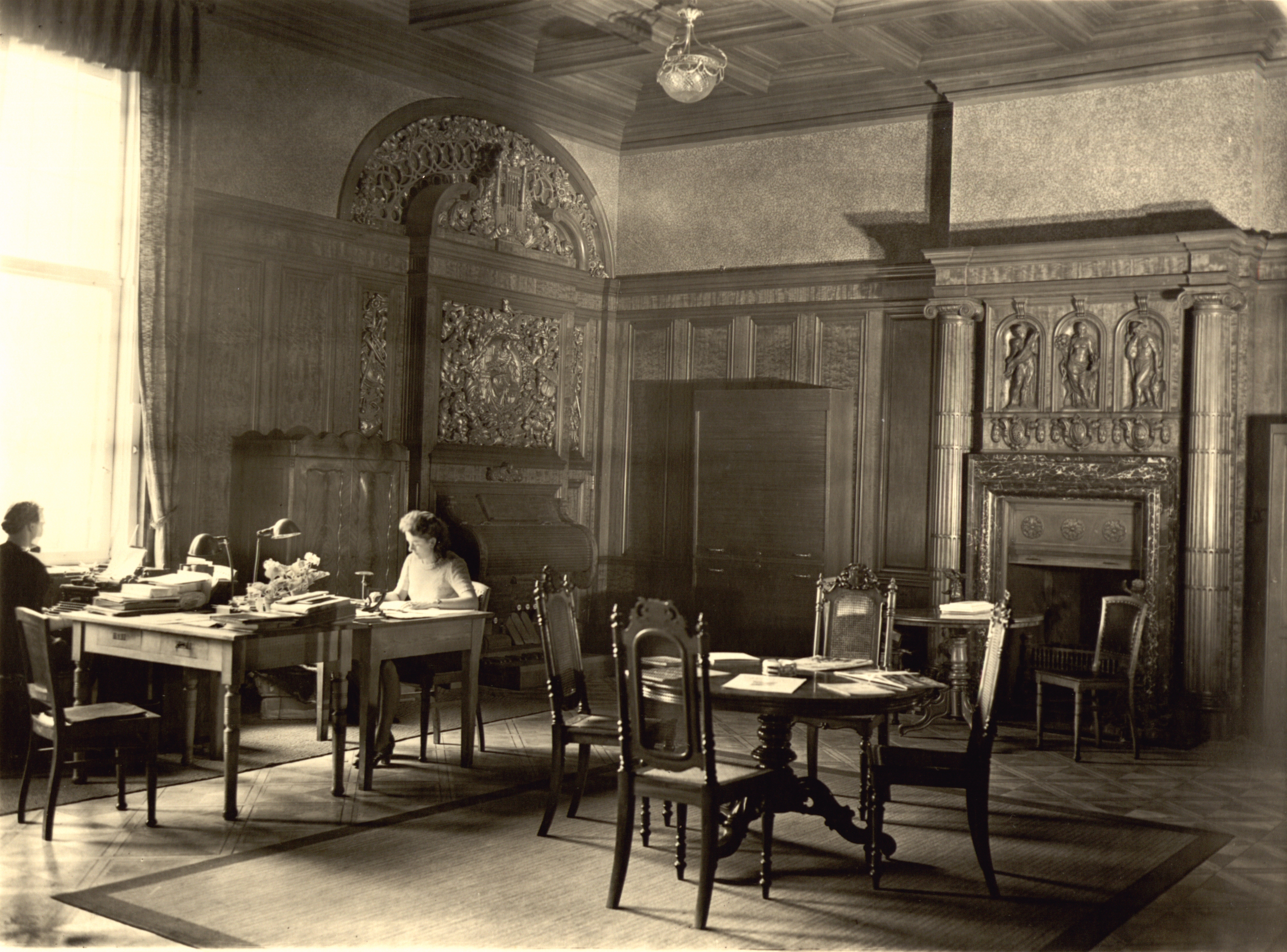The special connection between library, research and culture that characterizes the Ibero-Amerikanisches Institut to this day was already in place when it was founded.
The IAI was opened on October 12, 1930 in the stables of the Berliner Stadtschloss (Berlin City Palace) as a center for scientific and cultural exchange with Latin America, the Caribbean, Spain and Portugal.
The foundation stone was the donation of the Argentine scholar Ernesto Quesada, who bequeathed his private library of more than 82,000 volumes to the Prussian state. His donation was supplemented by the Mexico Library, compiled by Hermann Hagen with the support of Mexican President Plutarco Elías Calles, and the collection of geographer Otto Quelle from the University of Bonn.
Otto Boelitz was the founding director of the IAI. His successor, retired Major General Wilhelm Faupel, actively pursued a policy of Nazi propaganda from 1934. As a result, the Allies restricted the institute’s activities to a “Latin American Library” in 1945, by which time it had relocated to Berlin-Lankwitz. It was not until 1954 that the regional focus was explicitly expanded again to include Spain and Portugal.
When it was incorporated into the Stiftung Preußischer Kulturbesitz (SPK, Prussian Cultural Heritage Foundation) in 1962, the institute was given back its original name, "Ibero-Amerikanisches Institut”.
From the end of the 1990s, the institute was extensively restructured. Building on this, the turn of the millennium has seen decisive progress in the networking of information, research and culture, as well as in internationalization.
Since 1977, the IAI, together with other institutions of the Stiftung Preußischer Kulturbesitz (external link, opens in a new window), has been part of the Kulturforum (external link, opens in a new window). In addition to the Kulturforum, the newly established Forschungscampus Dahlem (external link, opens in a new window) (Research Campus Dahlem) is also important for intensifying cooperation within the foundation.
Find out more about the history of the IAI
